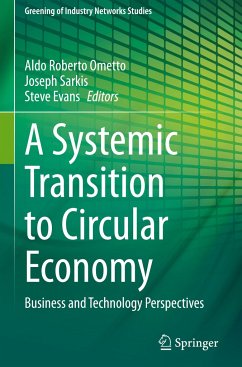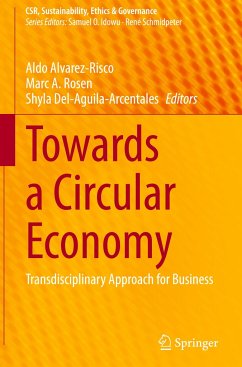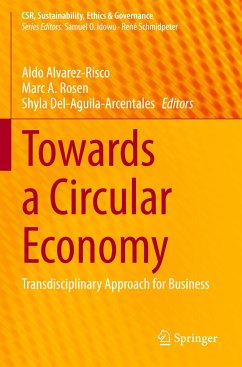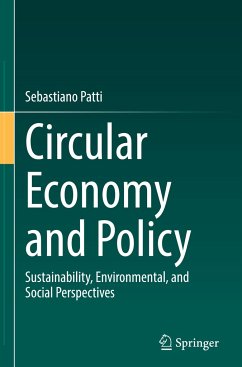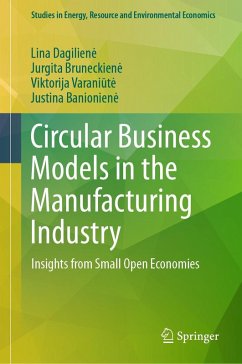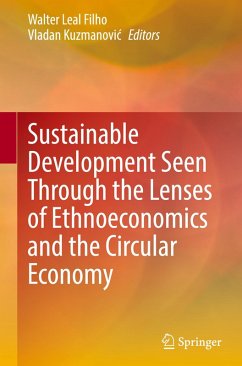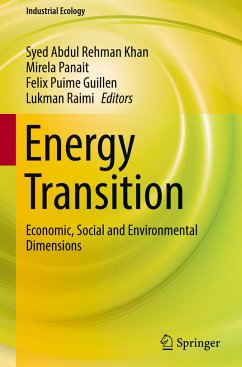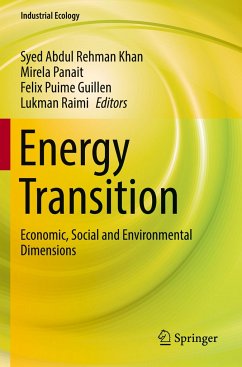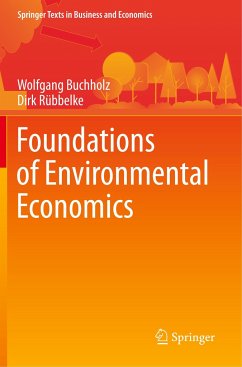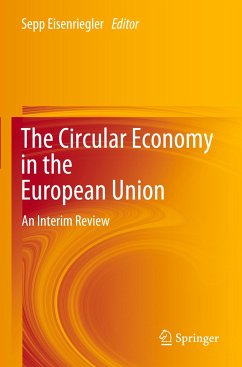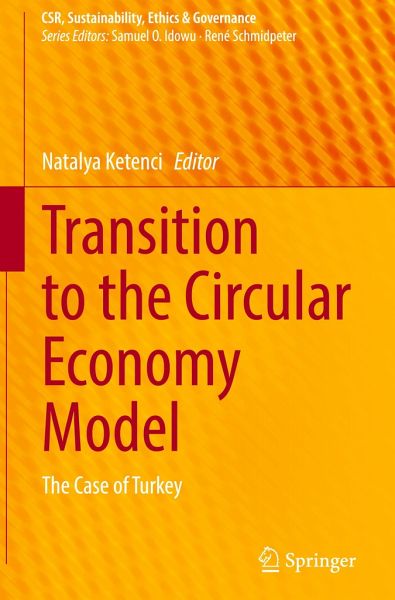
Transition to the Circular Economy Model
The Case of Turkey
Herausgegeben: Ketenci, Natalya

PAYBACK Punkte
53 °P sammeln!
This edited volume provides a multisectoral, multidisciplinary analysis of the circular economy in Turkey. The chapters delve into different segments of the economy, monitoring the progress of the transition to circularity as it is occurring. Written by experts in the circular economy, chapters touch on different aspects of the sustainability transition-from AI and entrepreneurship to luxury fashion to green finance. Chapters also refer directly to applicable UN Sustainable Development Goals, noting the progress made towards related development targets. This volume will be of use to students, ...
This edited volume provides a multisectoral, multidisciplinary analysis of the circular economy in Turkey. The chapters delve into different segments of the economy, monitoring the progress of the transition to circularity as it is occurring. Written by experts in the circular economy, chapters touch on different aspects of the sustainability transition-from AI and entrepreneurship to luxury fashion to green finance. Chapters also refer directly to applicable UN Sustainable Development Goals, noting the progress made towards related development targets. This volume will be of use to students, academicians, experts, and professionals interested and working on different aspects of circular and green economies.





